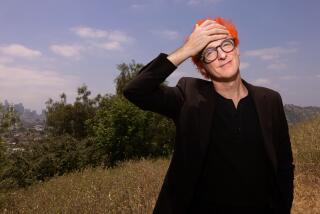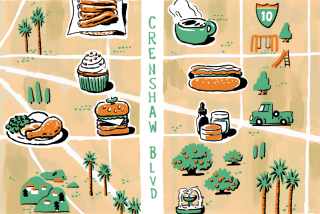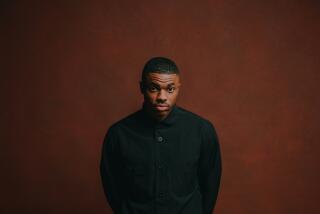Nipsey Hussle fans convene online for 10th anniversary of ‘The Marathon’
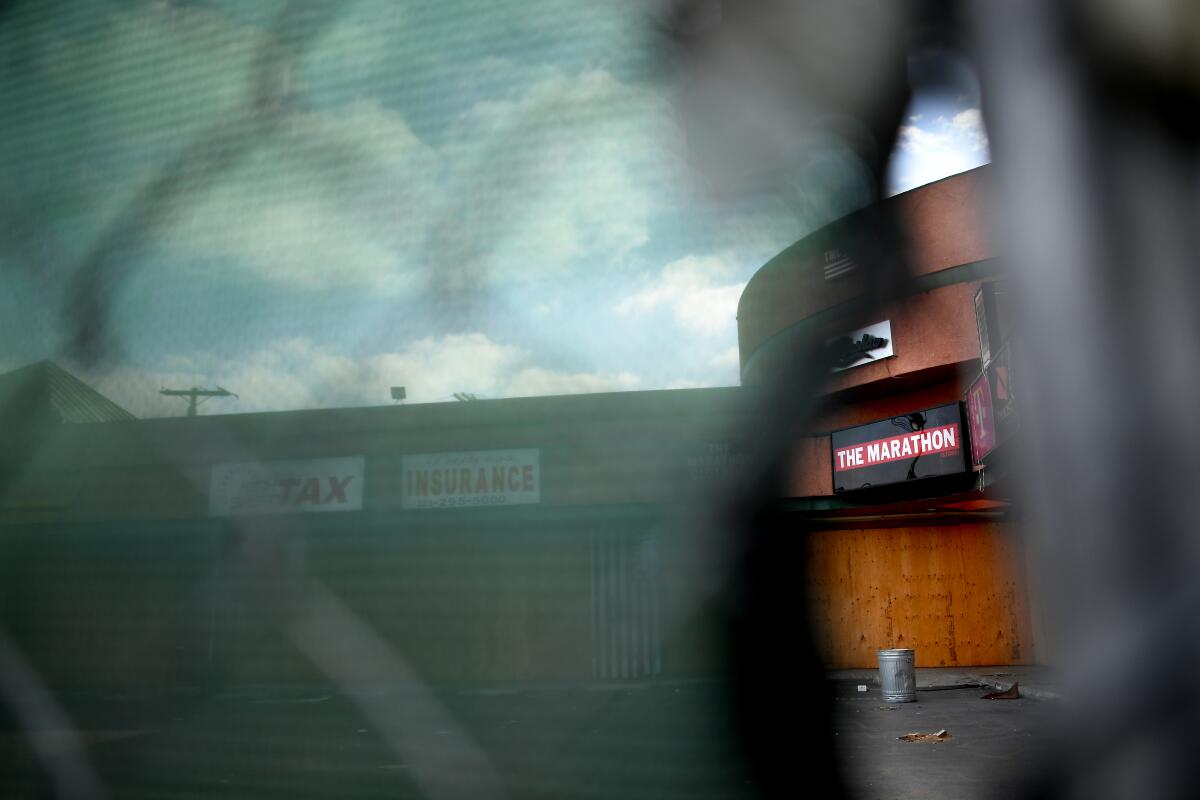
The Crenshaw Boulevard strip mall that was the center of Nipsey Hussle’s fame is surrounded by a fence, nearly two years after the rap star was fatally shot there.
Vector 90, Hussle’s co-working space and incubator for local entrepreneurs, is mostly shuttered because of the COVID-19 pandemic.
But people close to Hussle say they are pushing forward with his vision of empowering his South Los Angeles community.
And Hussle’s fans are drawing inspiration from his songs and his life story during a time of racial unrest and a pandemic that has killed more than 460,000 Americans, crippled the economy and put millions out of work.
Last Friday, more than 40,000 people from around the world tuned into a livestream celebrating the 10th anniversary of the drop of Hussle’s seminal mixtape, “The Marathon.” More than 400,000 others viewed the YouTube video in the days afterward.
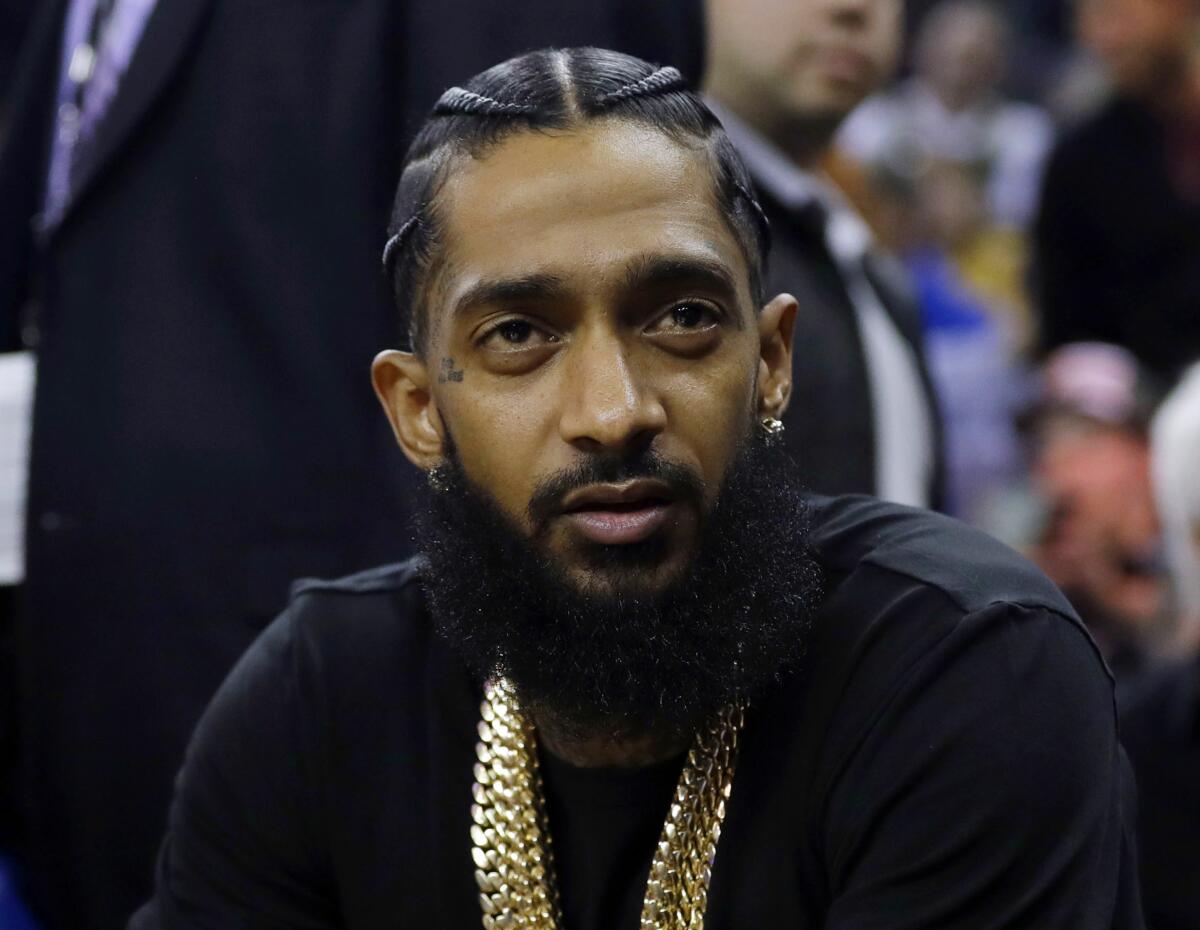
“The Marathon” came out in December 2010, but organizers decided to save the anniversary event until the turmoil from November’s presidential election had died down. They also thought Black History Month was a fitting time for a tribute to Hussle, who was born Ermias Asghedom.
Fans who tuned in were taken on a tour of important places in Hussle’s career, from the now-demolished House of Blues on the Sunset Strip, where Hussle had his first major show, to the Hollywood Roosevelt hotel, where Hussle was interviewed by TMZ several times.
The event was spearheaded by Hussle’s road manager, Jorge Peniche, who helped craft the mogul’s image through stark black-and-white photography. The video was produced by creative agency Oki Doki using animation, Peniche’s photos and interviews that provide insight into Hussle’s music as well as his “Marathon” mindset, which emphasizes entrepreneurship and giving back to the community.

Hussle’s voice came through in video clips of previous interviews. He was also represented in the livestream by a silver Mercedes-Benz SL 550 — one of his prized possessions.
Hussle recorded “The Marathon” at the Wilshire Westlake Building on the edge of MacArthur Park, sleeping there overnight while spraying boric acid to keep roaches away, his brother, Samiel Asghedom, said in the video.
“That studio was free of ego and was full of inspiration and vulnerability and honesty and authenticity,” Peniche said as a song from the mixtape, “Mac 11 on the Dresser,” played in the background.
The song touches on a theme Hussle often highlighted: his struggle to move past his membership in one of L.A.’s most notorious street gangs, the Rollin’ 60s Crips.
Most the time I look inside and find the answers waitin’
Been tryna change my life but it’s aggravatin’ ...
An obligatory stop on the video tour was the strip mall at Crenshaw and Slauson Avenue, where Hussle sold CDs from his car as a fledgling rapper and where he and his brother opened the T-shirt store that eventually became Marathon Clothing.
The strip mall was also where Hussle died March 31, 2019, at age 33, shot at least 10 times. Prosecutors have charged a fellow Rollin’ 60, Eric Holder, with the killing, saying Hussle had warned that people were calling Holder a snitch.
Fans from around the country converged on the site, and larger-than-life murals honoring Hussle quickly sprouted up nearby, until the fence went up that summer.
Hussle’s business partner, David Gross, has said that the property will be turned into a mixed-use development called Nipsey Hussle Tower that will include a museum. A representative said before the event that Gross would not answer questions about the status of the property.
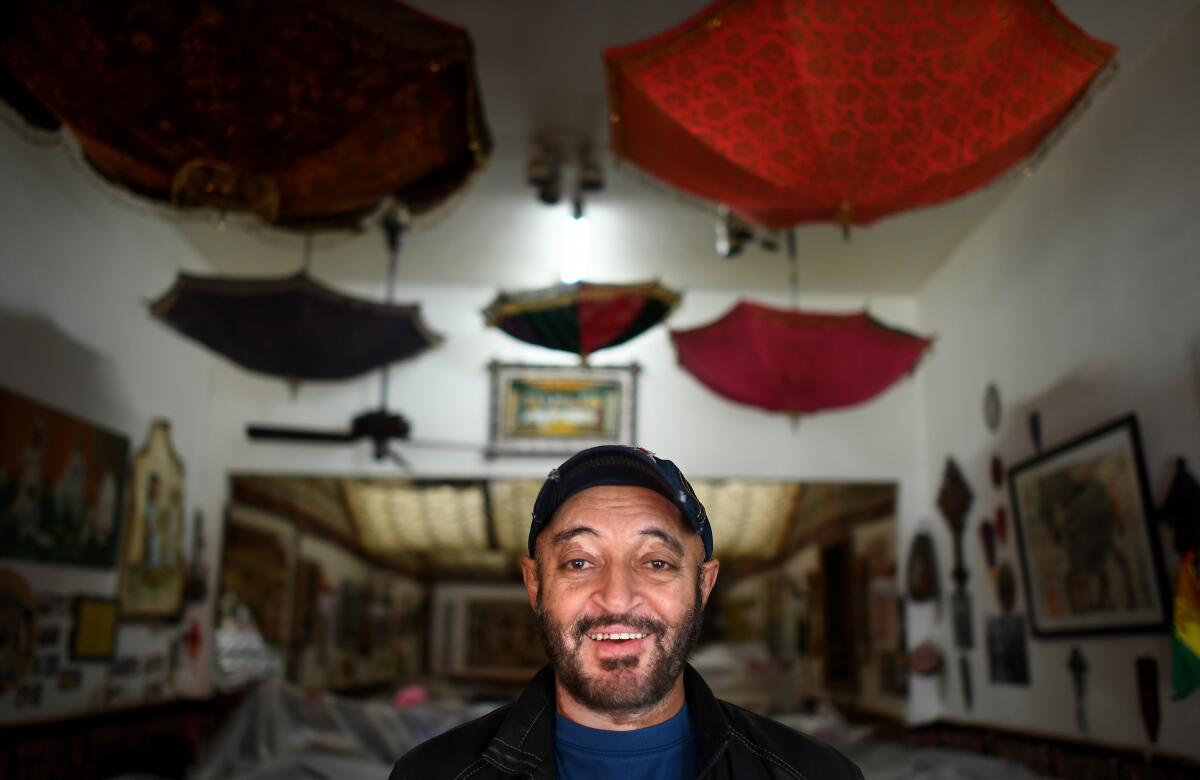
Another stop on the video tour was Merkato Ethiopian Restaurant and Market on Fairfax Avenue, where Hussle dined with his family as a child and held business meetings as an adult.
Typically, he ordered spaghetti or derek tibs, a beef dish with garlic and jalapeños, said Merkato’s owner, Dawit Belay.
Merkato has been surviving the pandemic through to-go orders and sales from a small market, Belay said.
Hussle’s father, Dawit Asghedom, is from Eritrea and became friends with Belay, even though their nations had fought a war.
“From the beginning, we are the same people,” Belay said in a phone interview with The Times. “Dawit is my friend.”
Likewise, Hussle tried to show his audience that peace between rivals was possible, recording songs and building a friendship with Compton rapper YG, a Blood.
“He was working hard to unite people, to motivate people, and he got the results, and that’s a blessing,” his father told The Times.
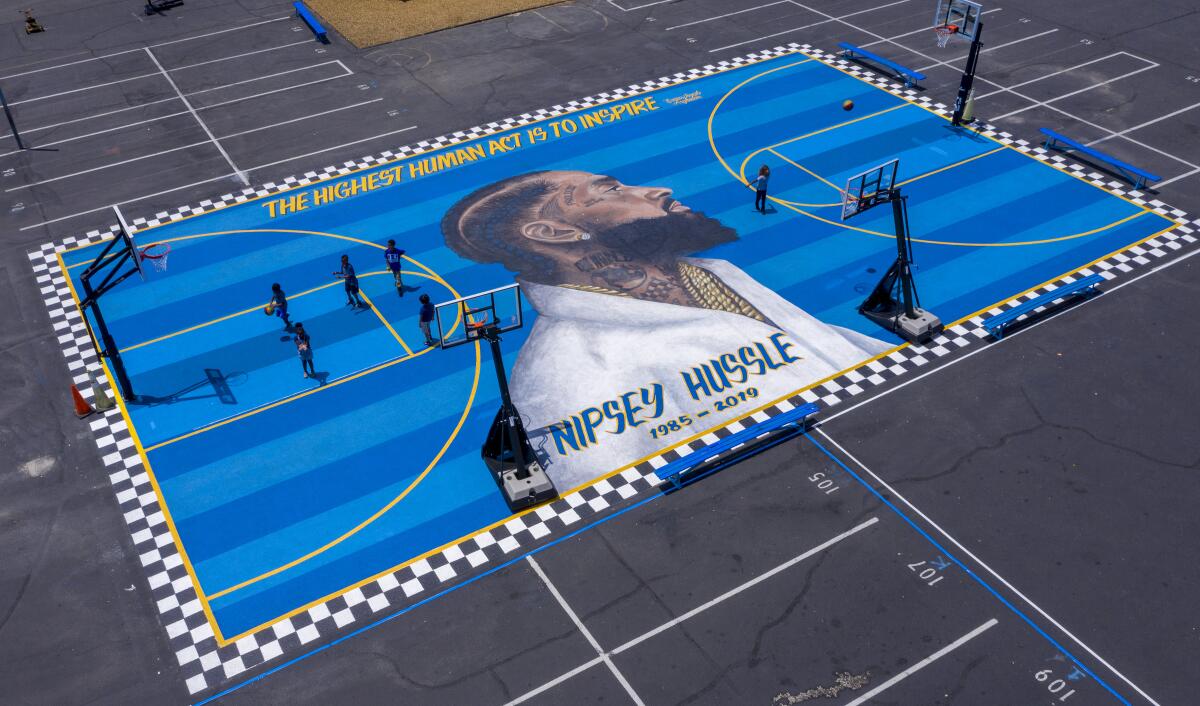
Gross said he was a fan of Hussle well before they met at a Lakers game in 2016 and became business partners in ventures like Vector 90 and the economic development fund Our Opportunity.
“The things that made me want to connect with Nip, made me a fan of Nip, was everything that came before I met him,” he told The Times.
Gross said that setbacks caused by the pandemic have also been an opportunity to evolve, for example by switching to a digital curriculum for Vector 90 that was already on the to-do list.
He hopes all Nipsey Hussle fans will continue to embrace everything the Marathon mentality stands for — a “radical commitment to ownership, independence, entrepreneurship and kind of creative, aggressive intelligence.”
On Friday night, the final photo flashing on the screen was of Hussle driving his Benz, his daughter perched on his lap.
More to Read
Sign up for Essential California
The most important California stories and recommendations in your inbox every morning.
You may occasionally receive promotional content from the Los Angeles Times.
